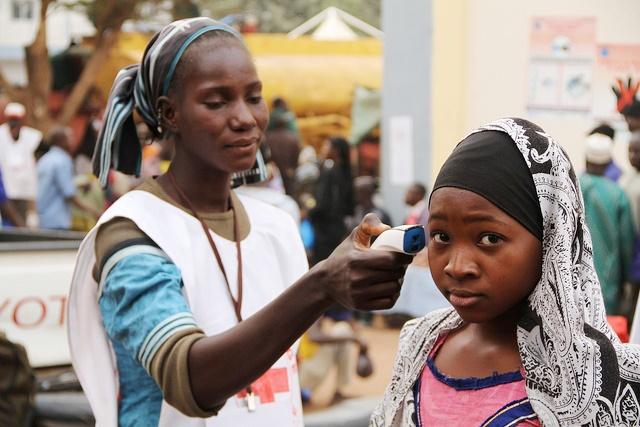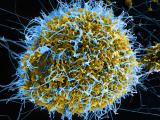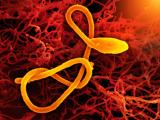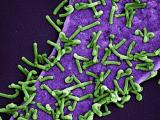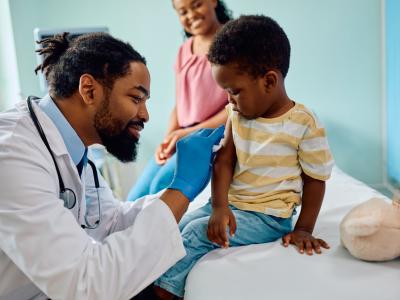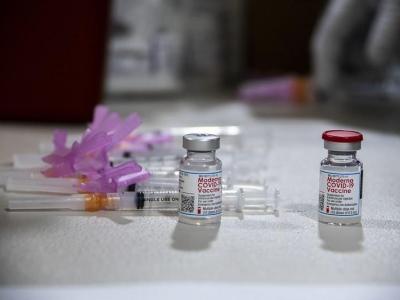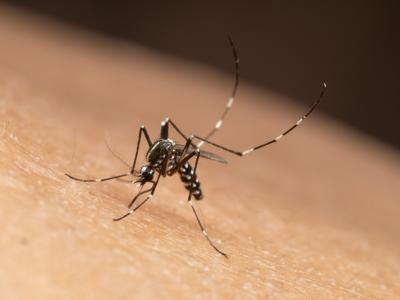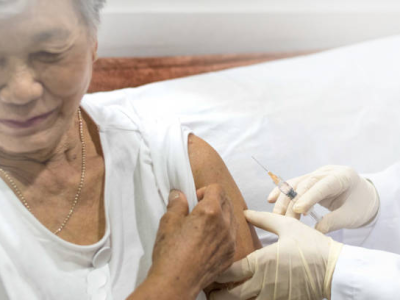Though the international risk of Ebola spread is shrinking as response actions make headway in the outbreak region, the situation is still a public health emergency of international concern (PHEIC), the World Health Organization (WHO) announced today.
In a related development, the health official leading the WHO's Ebola response said today at a media briefing that signs of recent progress by all three outbreak countries appear to be real and that each is on track with goals to curb disease activity ahead of the rainy season, which begins over the next several weeks.
PHEIC continues as concerns raised
The WHO's emergency committee on Ebola, appointed last August, met for the fifth time yesterday. It was tasked with advising if the emergency declaration should remain in place and to determine if any other steps should be taken. The group meets every 3 months or more often, if needed. The group last met in January.
In a statement today, the WHO said the group recognized the progress achieved by Guinea, Liberia, and Sierra Leone, but it warned about complacency setting in and emphasized the importance of community engagement.
It raised concerns about a recent spate of healthcare worker infections and urged response groups to ensure that infection prevention and control measures are rigorously applied.
The expert group discussed probable sexual transmission of Ebola, amid reports that Liberia's most recent case-patient was likely exposed to the virus after sexual contact with a survivor of the disease. Committee members welcomed the news that a research program is under way to learn more about sexual transmission of the virus, encouraging scientists to accelerate and make the studies a priority, the WHO said.
In a discussion of health measures that some countries ordered that go beyond temporary recommendations,committee members said they were still concerned that steps such as quarantine of returning travelers, cancellation of flights, and border closures are obstacles to response and recovery efforts. The WHO said that, although some countries have dialed back their extra measures, about 40 are still implementing them, and some airlines haven't resumed flights to the outbreak countries.
Experts recommended that the situation still constitutes a PHEIC and that countries extend the temporary measures.
The view from the ground
At today's media briefing, Bruce Aylward, MD, MPH, assistant director-general in charge of the WHO's Ebola outbreak response, said disease activity showed a steep decline early in the year, hit a several-week plateau, and is now dropping again. "We think it reflects real progress," he said.
For example, he noted that Sierra Leone is showing further improvement with contact tracing and has bigger teams involved in the process. He added that the country experienced a drop in cases last week despite aggressive case-finding that was part of a recent 3-day lockdown during the last few days of March.
Aylward said Guinea responders now have access to the entire population of Forecariah district, an Ebola hot spot where several community resistance flare-ups occurred. Another hopeful sign is that the countries seem to have contained the disease to coastal areas, which should be easier to reach as the rainy season comes in the weeks ahead.
He said, however, that Ebola deaths in community settings and new cases that aren't on known contact lists are still occurring in Guinea and Sierra Leone, both signs that the disease is still not fully under control.
He said responders are watching to see if the forested region at the Guinea–Sierra Leone border where the outbreak began reaches a key milestone in 2 days: going 42 days (two incubation periods) without a new case, which would signify that the area is considered free of Ebola.
In other developments, he said research teams conducting a ring-strategy phase 3 trial of an Ebola vaccine in Guinea have enrolled 7 rings so far, with a target of enrolling more than 100 rings. "It's still a challenge to get the full answer from that study," he said.
Regarding concerns about the possibility of sexual transmission of the virus in Ebola survivors, Aylward said Liberia's government is waiting until more research is known before they fine-tune their recent recommendation that survivors should abstain from sex indefinitely. He said health officials would like to offer survivors screening services so they know their status, if the technology and resources allow.
Case number update, health worker leaves hospital
- In a separate update, the WHO said today that the number of confirmed, probable, and suspected Ebola cases in the three outbreak countries has reached 25,556, including 10,587 deaths. The totals reflect increases of 41 infections and 15 deaths since the WHO's update on Apr 8. The latest numbers include data from Guinea and Sierra Leone as of Apr 8 and Liberia as of Apr 5.
- The US National Institutes of Health (NIH) announced yesterday that an American healthcare worker who was sickened by Ebola while working in Sierra Leone was discharged in good condition from the NIH Clinical Center Special Clinical Studies Unit. The patient was evacuated from the outbreak region and hospitalized at the NIH on Mar 13. The NIH said the patient has requested that no further information be provided. The individual was working with Partners in Health (PIH). Other health workers were potentially exposed when the health worker got sick and were evacuated to their home countries, including the United States, for monitoring. In a statement, PIH said two consecutive tests showed no presence of the virus.
See also:
Apr 10 WHO statement
Apr 10 WHO Ebola situation summary
Apr 9 NIH press release
Apr 9 PIH statement
